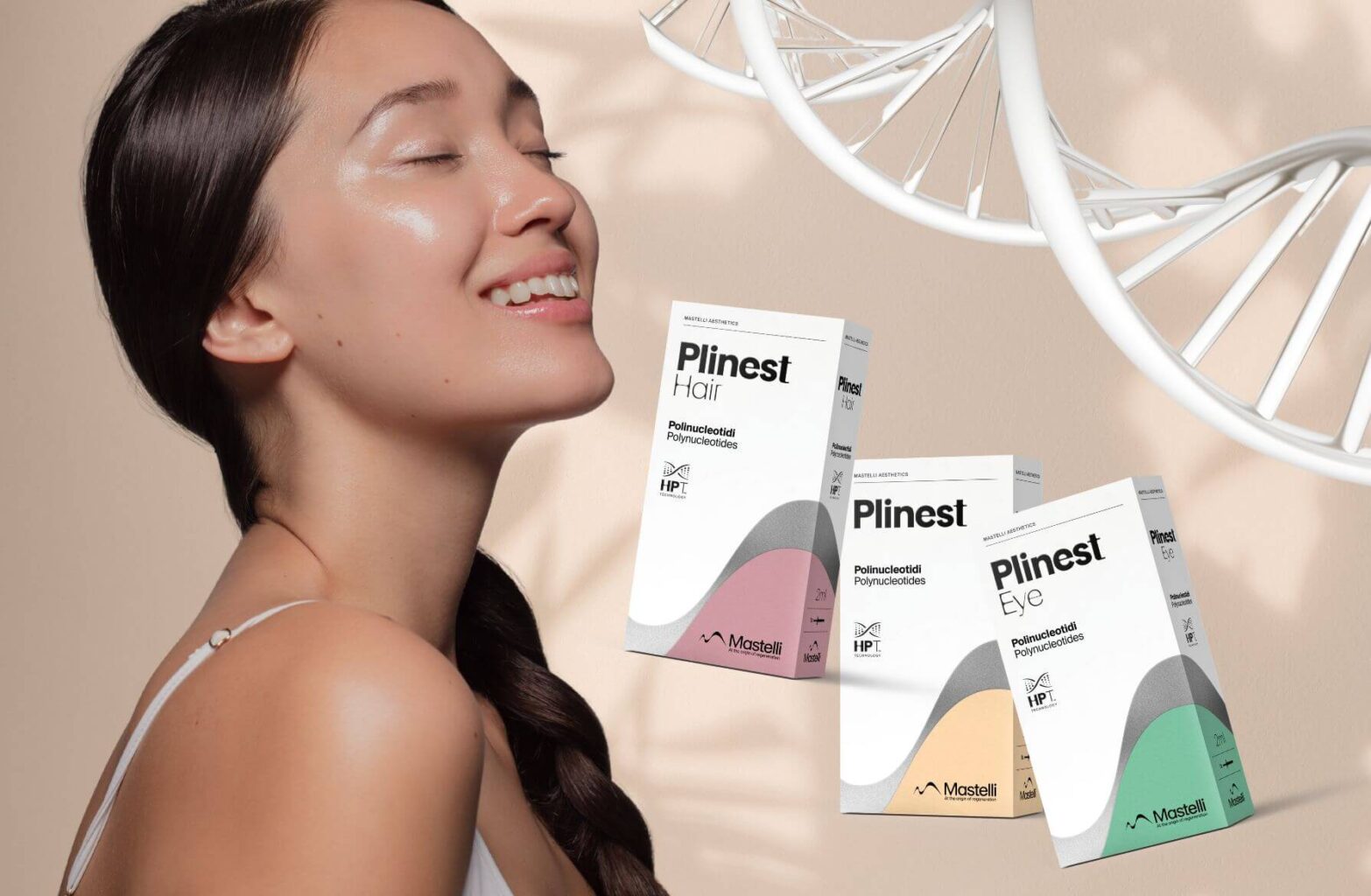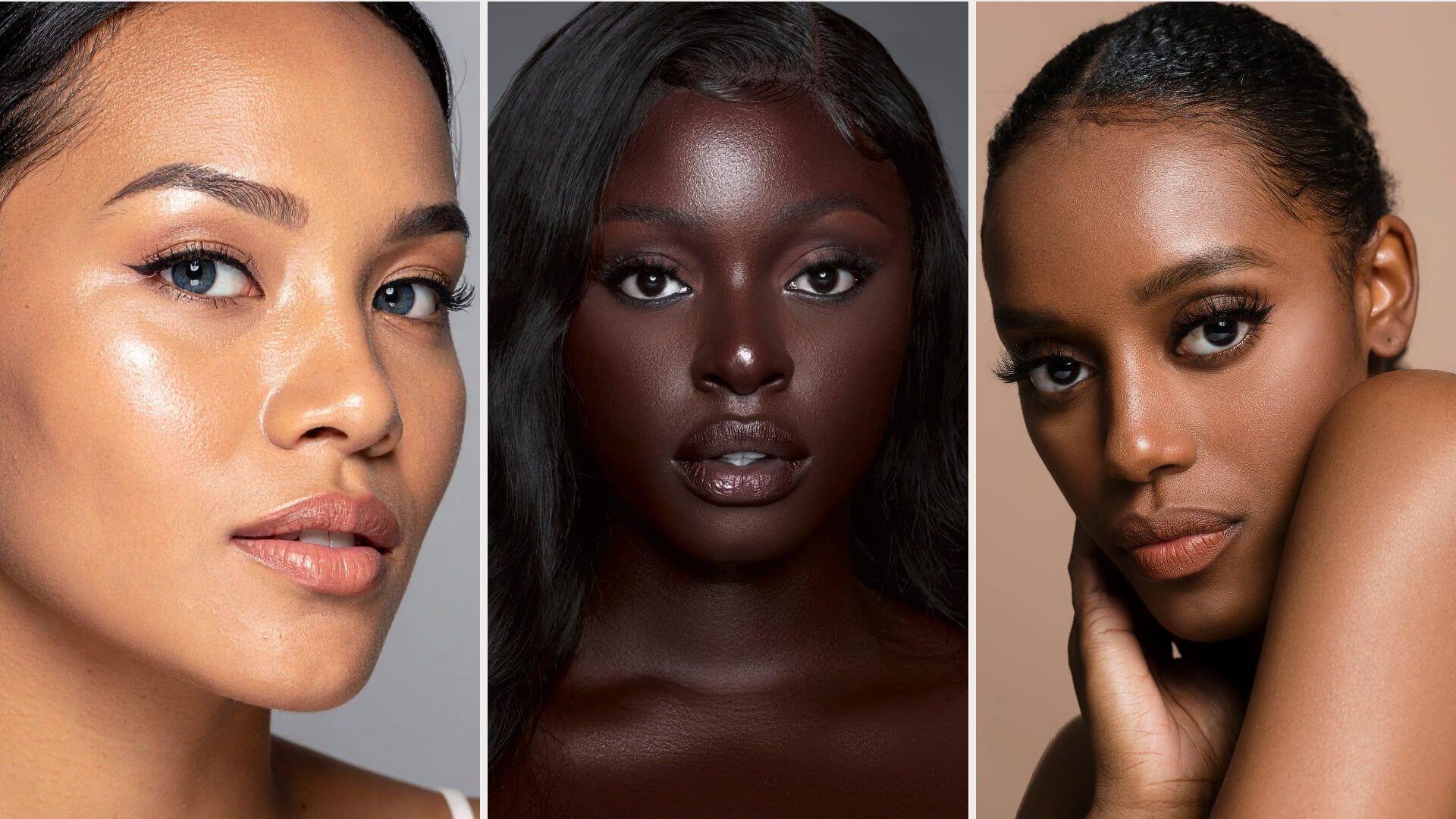Polynucleotides are emerging as the latest ‘it’ injectable treatment and aesthetics trend among women seeking non-invasive procedures with significant results. A number of health and cosmetic benefits are being attributed to these DNA-derived molecules, which promote tissue regeneration and enhance skin health. Although polynucleotides are found in many topical skincare formulations (and have been used in medicine to heal wounds and burns since the 1970s), they’re now becoming the latest innovative and exciting injectable treatment in the aesthetics world. Thanks to their biostimulation properties, polynucleotide injections can regenerate your skin from within after just a few treatments. The Women’s Journal spoke to Dr. Bibi Ghalaie at 10 Harley Street about polynucleotides to find out everything you need to know.
What are Polynucleotides?
Polynucleotides are crucial molecules found in all living organisms, playing fundamental roles in various biological processes. Composed of nucleotides, they serve as the basis for genetic information storage, transmission, and expression. Put simply, polynucleotides are like tiny building blocks that make up DNA and RNA, which are considered instruction manuals for all living things. A polynucleotide carries information that lets our cells know how to grow and work.
Polynucleotides in Skincare
From serums to creams, polynucleotides have found their way into an array of skincare formulations. Their lightweight texture ensures rapid absorption, delivering potent rejuvenating effects without leaving a greasy residue. Whether addressing fine lines, wrinkles, or dullness, the incorporation of polynucleotides into skincare routines promises unparalleled results, leaving the complexion radiant and youthful.
It has been shown that polynucleotides are highly effective in women’s skincare in numerous clinical studies. Regular use of polynucleotide products leads to improved skin texture, hydration, and overall appearance. Moreover, since it is compatible with all skin types, it is a versatile solution for individuals seeking comprehensive skincare solutions.
But as well as topical formulations, polynucleotides are now being injected as a treatment. In this innovative approach, polynucleotides are delivered directly into the skin in concentrated doses, maximising their effectiveness and yielding profound rejuvenating effects to the skin from within.
Polynucleotide Injections
As a result of these molecules being injected into the skin, polynucleotides stimulate cellular repair mechanisms, boost collagen production, and improve skin quality. The result is smoother, firmer, and more youthful-looking skin.
Targeted Delivery
The administration of polynucleotide injections is a relatively straightforward process. The treatment involves injecting the polynucleotide solution directly into the dermis, the middle layer of the skin. This targeted delivery ensures that the molecules reach the fibroblasts, where they can exert their rejuvenating effects.
Types of Polynucleotide Injections
There are various formulations of polynucleotide injections, each designed for specific skin concerns and areas. Some formulations are tailored for anti-ageing, while others focus on hydration and skin texture improvement. Your practitioner will recommend the best type based on your individual skin needs from polynucleotides for your neck or hands to your hairline and scalp!
How Do Polynucleotides Benefit the Skin?
Cellular Repair and Regeneration
Polynucleotides aid in the repair of damaged cells and tissues. They stimulate the production of collagen and elastin, vital proteins that maintain skin elasticity and firmness. By enhancing the skin’s natural repair mechanisms, polynucleotides can reduce the appearance of fine lines and wrinkles.
Anti-Inflammatory Properties
Polynucleotides possess strong anti-inflammatory properties. They help soothe irritated skin, making them an excellent ingredient for those with sensitive skin conditions such as rosacea, eczema, and dermatitis.
Hydration and Moisture Retention
Polynucleotides improve the skin’s ability to retain moisture. By enhancing the skin barrier function, they prevent transepidermal water loss, keeping the skin hydrated and plump.
“Polynucleotides play a crucial role in skincare by influencing various aspects of skin health and appearance,” says Dr. Bibi. “The DNA contained within them carries encoded genes that give instructions to our skin cells to synthesise proteins essential for skin structure and function, such as fibroblasts, which are then used to synthesize collagen and elastin, which contribute to skin firmness, elasticity, hydration, and overall youthful appearance.
“Within the complex microenvironment of skin cells, nucleic acids regulate a myriad of cellular processes that are crucial for skin health. These processes encompass cell turnover, differentiation, and protein synthesis, which are vital for maintaining skin integrity, repairing damage, and promoting regeneration. By orchestrating these processes, polynucleotides ensure the continuous renewal and rejuvenation of skin cells, contributing to a radiant and youthful complexion.
“In recent studies, treatment with polynucleotides in 30-year-old individuals resulted in marked improvement of pore size and thickness, whilst in 40-year-old individuals there was marked improvement in skin tone, wrinkles, and sagging. They are excellent as a treatment modality for acne scars, and inflammatory skin conditions such as rosacea and psoriasis, and can also be used for hyperpigmentation.
“Polynucleotides significantly improve skin well-being and steady self-repair. They exert profound effects on genetic makeup, cellular processes, repair mechanisms, and overall skin health. The outcome is the preservation of skin vitality and resilience; a more natural and in-depth tissue regeneration and a healthier look of the skin.”
Mechanism of Action
Polynucleotides work by penetrating the skin and interacting with cellular receptors. They activate fibroblasts, which are cells responsible for producing collagen and elastin. This activation leads to increased collagen synthesis and improved skin elasticity.

Are Polynucleotides a Type of Skin Booster?
Dr. Bibi says: “Polynucleotides have a significant impact on boosting the appearance of the skin and its hydration, as well as its quality and overall health, whilst also protecting the skin against oxidative stress and damage from free radicals. The means by which they exert their effects is regenerative.”
“They are a cell signalling system, if you like, that gives instructions to skin cells, when injected, on how to self-repair, how to boost collagen and elastic production, and how to regenerate. There are significant differences between polynucleotides and hyaluronic acid-based skin boosters.”
Polynucleotides Versus Profhilo
The Difference Between Polynucleotides and Profhilo?
“The composition of polynucleotides and Profhilo is completely different,” says Dr. Bibi. “Namely, polynucleotides are highly purified chains of DNA molecules sourced from trout while Profhilo is a synthetic pure hyaluronic acid.
“But there are numerous other differences. Polynucleotides are regenerative. They significantly boost fibroblast formation in the skin. They are excellent for skin repair, improving inflammation in the skin, protecting the skin, and improving skin quality and overall health.
“Profhilo is not regenerative but it has a unique ability to attract and retain water molecules, up to 1000 times its weight, making it highly effective in hydrating the skin from within, resulting in a fresh and radiant appearance. Polynucleotides are a more appropriate treatment option for mature or aged skin, damaged skin, scarring, stretch marks, pigmentation, and individuals with sagging. They do not provide a volume or filling effect. Profhilo is more effective for those with dehydrated skin who need a more instant boost and is excellent for younger individuals. It can indeed give a lifting and subtle filling effect.
“Polynucleotides are potent in their benefits, the results take time to show, weeks to three months, whereas the results of Profhilo kick in within a few weeks so if an individual needs a more immediate boost, for example before an important event, Profhilo can achieve that.”
What is Profhilo? Everything You Need To Know About ‘Injectable Moisturisers’: Polynucleotides: Your Guide To The New ‘It’ Injectable TreatmentShe adds: “While Polynucleotides can be injected into the face, neck, decollete, hands, body, scalp, and intimate areas, Profhilo can be used on the face, neck, décolletage, hands, and body. Polynucleotides can help repair scalp health, promote hair growth, and rejuvenate the intimate areas, whereas Profhilo cannot offer these indications.”
Where Can You Have Polynucleotides Injected?
The best thing about polynucleotides is they can be injected almost anywhere. They can be injected into the face, neck, décolletage, hands, knees, scars, scalp, vagina and perineum, and stretch marks.
“Polynucleotides can be injected all over the face or in a specific area, such as the under eye, as a focused, targeted treatment,” says Dr. Bibi. “Treatment protocols are three sessions, spaced 2-3 weeks apart, and typically the result lasts approximately one year. Profhilo is injected into five specific injection points on each side of the face (the forehead and under the eye are not included) and the treatment involves two sessions four weeks apart, with results typically lasting approximately 6 months.”
What are the Different Types of Polynucleotides?
“There are a few different brands available in the UK, with the DNA being sourced from the gonads of either trout or salmon. But Dr. Bibi uses the Mastelli products produced in Italy and distributed by DermaFocus.
“There is a specific product for the under-eye region, called Plinest Eye, which is the most popular of the polynucleotides at my clinic on London’s Harley Street. There are two polynucleotide products for the face, Plinest, and Newest, that differ in their concentration. They are specifically recommended for the prevention of aging and the maintenance of youthful skin quality, particularly for the face, neck, and décolleté areas.”
Polynucleotides for Dark Circles Under Eyes
In terms of under-eye skin treatments, Dr. Bibi says polynucleotides are ‘one of the best’. “Polynucleotides provide a powerful and brilliant treatment for fine lines, loss of elasticity, and crepey skin under the eyes,” she says. “Besides improving transparency, they are also effective in addressing pigmentation and darkness.
“I am currently assessing the effects of rejuvenating the tear trough/under eye area by injecting dermal filler deep onto bone to address hollowness and volume loss, and by injecting polynucleotides superficially into the skin to improve skin quality and thickness. As of now, the results have been impressive.”
Can Polynucleotides be Injected Alongside Botox or Dermal Filler?
Dermal fillers and botox can be used together with polyneclotes. In fact, they work synergistically with both treatments according to Dr. Bibi. “A toxin deactivates the muscle beneath the skin, whereas a polynucleotide improves the skin’s quality, reducing the amount of work needed by the toxin to maintain skin’s smoothness. While HA-based fillers create volume and lift, they do not address skin texture and quality, whereas polynucleotides can.
“A good analogy is to think of them as a thick layer of icing on a cake. Toxins and fillers add to the sponge, but the outside of the cake still needs to be perfect.”
Do Polynucleotides Tighten Skin?
A number of clinical studies have demonstrated significant improvements in skin texture, quality, wrinkles, roughness, elasticity, and brightness, along with significant improvements in overall skin quality and texture. As a result of all of these benefits, the skin appears to be healthier and tighter as a whole.
Who Are Polynucleotides Best Suited To?
Polynucleotides can be used by everyone,” says Dr.Bibi. “Whether you’re a young adult who hopes to improve their skin quality and maintain a youthful appearance, or you’re an older adult looking to repair damage to your skin.
“They are great for post menopausal women who suffer from vaginal dryness and aging in the intimate areas, as well as women with thinning hair, male and female pattern hair loss, receding hair lines and poor hair quality. Despite the fact that they have excellent results, they are not the best choice if you want an immediate result or cannot commit to at least three sessions. However, they are extremley safe and very little downtime is involved.”
She adds: “Since Plinest, Plinest Eye, and Newest contain no fish material in the final product, they are suitable for vegetarians and vegans.”

Post-Treatment Care
“Following polynucleotide injections, clients may experience mild redness, swelling, or bruising at the injection sites, which typically subsides within a few days,” says Dr. Bibi. “It is essential to follow post-treatment care instructions, including avoiding sun exposure, wearing sunscreen daily, and adhering to a gentle skincare regimen to promote healing and optimise results.”
As word spreads about the remarkable benefits of polynucleotide treatments, they are becoming increasingly sought after by women seeking natural-looking yet noticeable improvements in their skin’s appearance and texture. With ongoing advancements in cosmetic technology, polynucleotides are poised to remain at the forefront of anti-aging and rejuvenation treatments for years to come.





